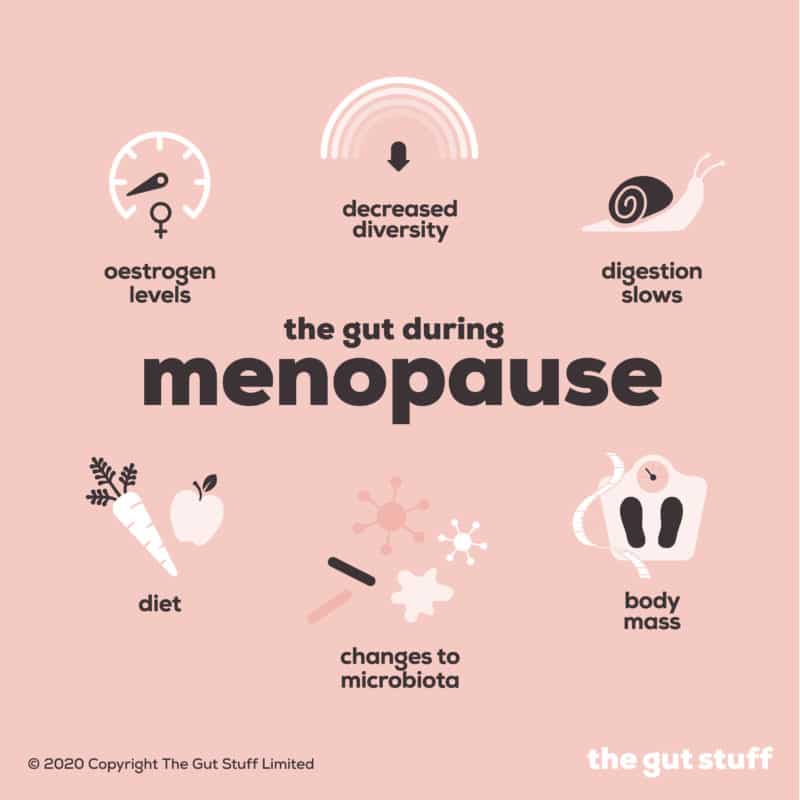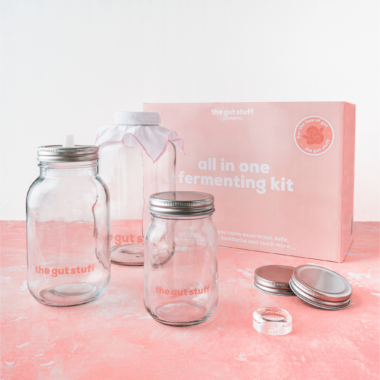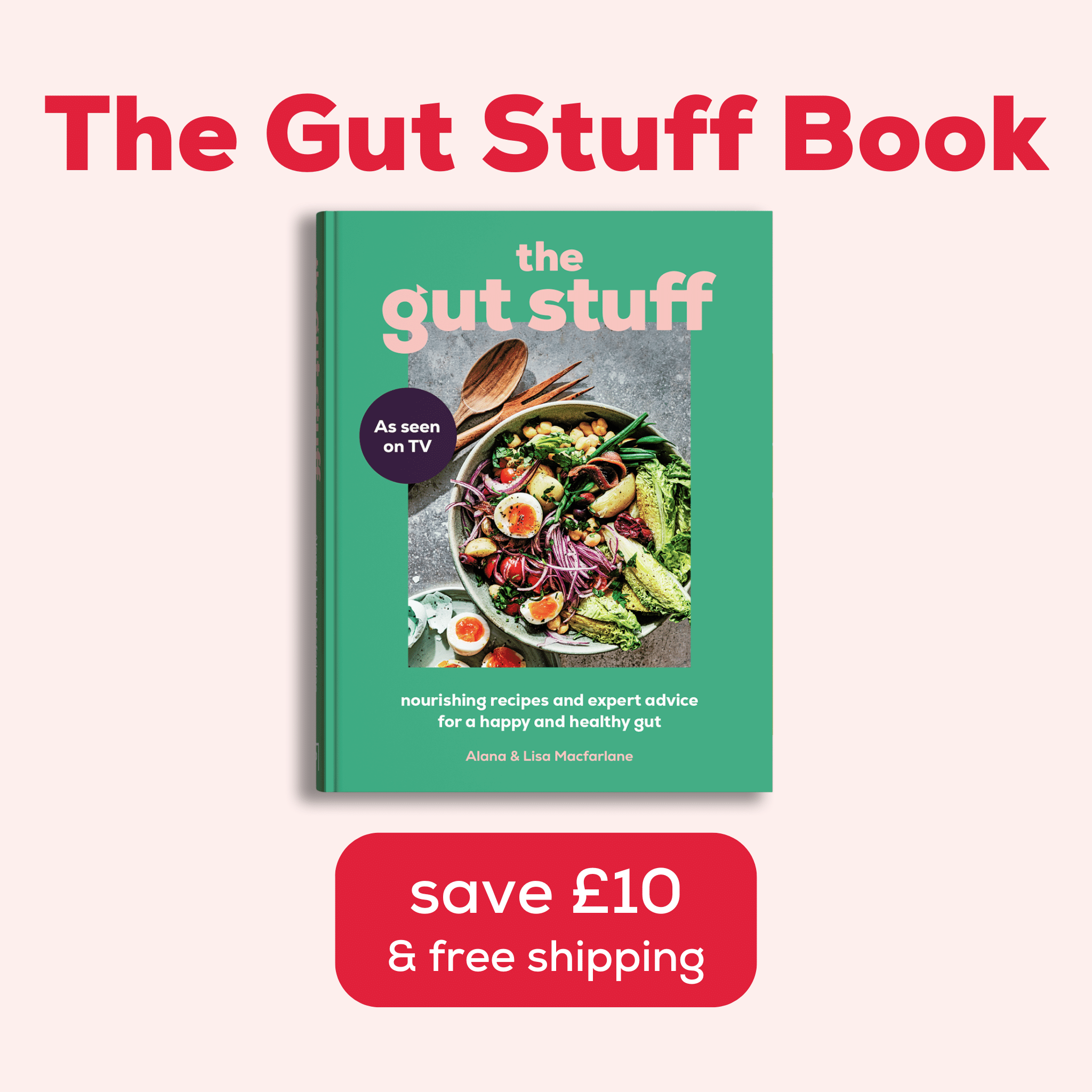menopause and the gut

The average age for menopause in UK is 51, 51% of the population in the UK are female and will transition through the menopause. Interestingly, there is a higher prevalence of IBS and/or greater symptom severity in women, than in men. Just like how we poo, the menopause transition has a shroud of taboo around it, but we want you to know just how crucial looking after your gut and its community of microbes to this stage in life.
There’s no doubt that you will know someone who it effects. 3 out of 5 working women have reported that menopausal symptoms have negatively impacted their work (CIPD). As you transition through menopause your oestrogen levels start to decline, which can affect all manner of things, from your mental health, how much energy you feel you have and even the types of microbes living in your gut. Oestrogen is actually a steroid hormone and is derived from cholesterol, you produce different types depending on your life stage, for example, oestradiol is the predominant oestrogen in women who are not pregnant prior to menopause and estrone, which is predominant post menopause.
We often don’t hear much about perimenopause (menopause tends to hog the limelight) but during the 3-5 years before menopause (usually late 40’s), your hormone levels start to decline and you may experience symptoms such as temperature fluctuations, mood disruption and even your digestion can slow down, with many experiencing constipation. Once you’ve had no periods for 12 consecutive months, you’ve reached the menopause. Some women experience no symptoms at all.
While it’s very easy to pinpoint specific symptoms to a life stage, it is important to remember that around this time, many other changes may also occur, not just to your hormones, like stress, sleep, family pressures (e.g. looking after elderly parents), activity may decrease, alcohol consumption may increase and diet may get neglected, which can also have a huge impact on your gut.
Did you know you have a TEAM of bacteria living in your gut that work hard in metabolising and regulating the amount of oestrogen that circulates round your body at any one time? It’s called your estrobolome! The work hard at taking circulating oestrogen and turning it into something your body can get rid of as waste (urine, bile and faeces) to stop it going round any further. Clever bugs.
Tips to support you through the menopause transition:
- Up your plants: Include plenty of vegetables, wholegrains, fruit, nuts, seeds, herbs and spices throughout your day, keep the skin of veg and fruit where you can and think of how you can get plants into every meal. Could you challenge yourself to add just one more plant to each meal?
- Hydration: be conscious about how much fluid you are consuming and what your individual need is (starting at around 1.5litres per day). Your water requirement will depend on your size, how active you are, if you are talking a lot (this expels water droplets) and the climate. Fibre (the undigested part of plants) absorbs water from your large intestine so make sure you increase your water intake appropriately if you suddenly start including more plant foods.
- Exercise: gentle exercise can support gut motility (how food is moved along your gastrointestinal system), keeps your microbes diverse and is a great way to relieve stress. Remember Goldilocks – not to hard, not too little, it needs to be just right for you.




